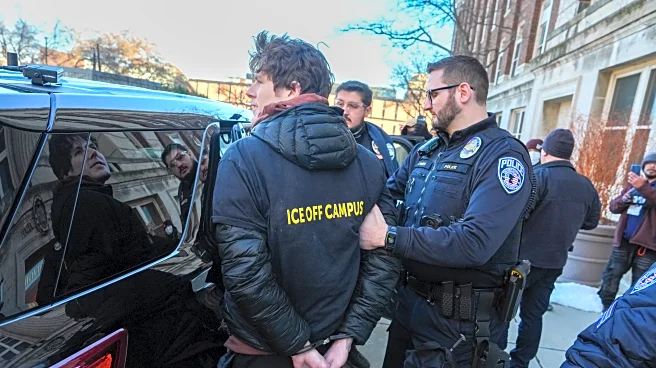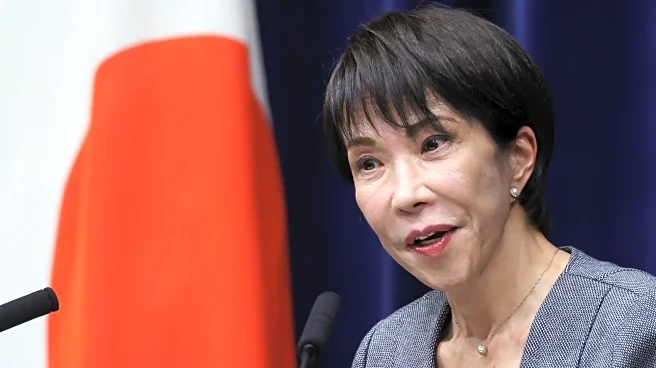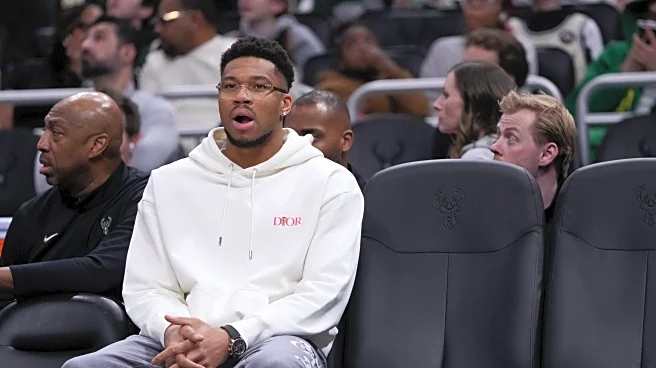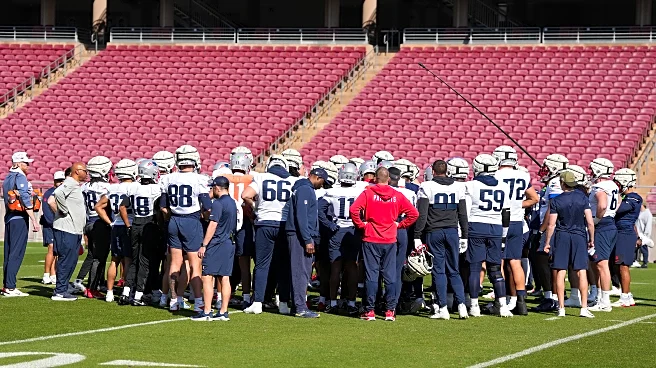What's Happening?
Georgina Bradley, known for her role as head of operations on Channel 4's 'Hunted', shared insights from her 26-year career with the Thames Valley Police. Bradley, who resides in Henley-on-Thames, recounted the challenges she faced as a woman in the police
force during the 1990s and early 2000s. She described the environment as a 'boys' club' where misogyny was prevalent, and women were often sidelined. Despite these challenges, Bradley emphasized the confidence and inner strength she gained from her experiences, which included handling serious incidents and making arrests. Her decision to join the police was influenced by a violent incident she witnessed at a pub, which led to her involvement in a court case and subsequent encouragement from detectives to consider a career in law enforcement.
Why It's Important?
Bradley's story highlights the broader issues of gender inequality and the cultural challenges women have historically faced in male-dominated professions like law enforcement. Her experiences underscore the importance of diversity and inclusion within police forces, which can lead to more effective policing and community relations. Bradley's advocacy for joining the police suggests a potential shift towards more inclusive recruitment practices. Her journey also reflects the personal growth and resilience that can result from overcoming workplace adversity, serving as an inspiration for women in similar fields.
What's Next?
As Bradley continues her career in television, her experiences in law enforcement may influence her future projects and advocacy work. Her story could inspire discussions on improving gender equality within police forces and other traditionally male-dominated sectors. Additionally, her involvement in media could provide a platform to address these issues more broadly, potentially influencing public perceptions and policy changes.
Beyond the Headlines
Bradley's narrative also touches on the psychological and emotional aspects of policing, such as the need for bravery and compassion. These qualities are crucial for effective law enforcement and community engagement. Her story may encourage a reevaluation of the skills and attributes valued in police recruitment and training, promoting a more holistic approach to policing that prioritizes empathy and understanding.

















